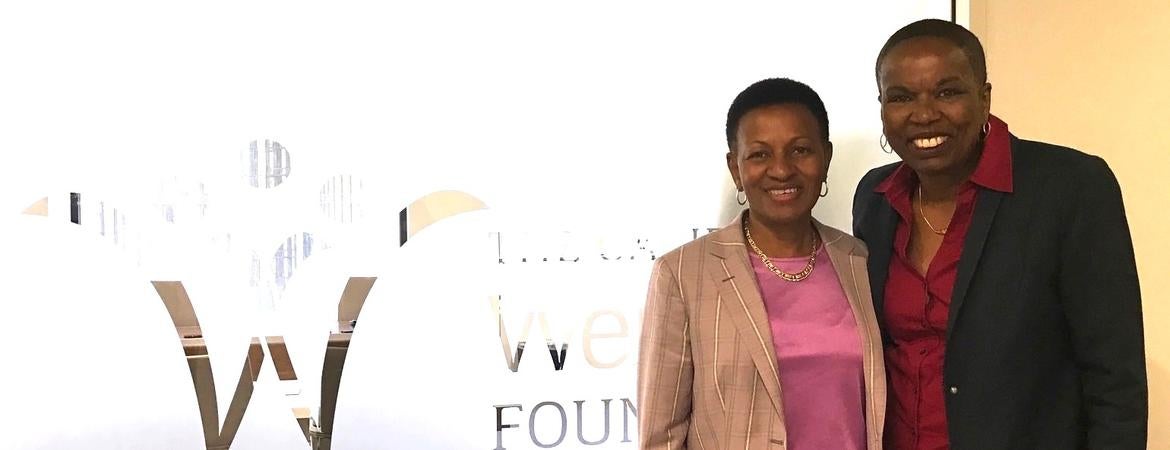
Impressed with the student diversity in the School of Medicine at the University of California, Riverside, The California Wellness Foundation has awarded a four-year grant of $450,000 to the medical school to “help build a new generation of diverse health care workers by enabling underrepresented minority students to pursue careers in health professions.”
“I am extremely grateful for this generous grant from the foundation,” said Dr. Deborah Deas, vice chancellor for health sciences and Mark and Pam Rubin Dean of the School of Medicine. “These funds will significantly support some of the educational core operating expenses and help enhance the educational experience, leadership training, and mentorship that we provide to our medical students. As we look to continue our efforts to recruit, train, and graduate students from underrepresented communities, it brings me so much pleasure to have the support of The California Wellness Foundation as we work together to serve the Inland Empire.”
Underrepresented minority, or URM, students include those students who identify as American Indian/Alaskan Native, Black/African American, Chicano/Latino, or Native Hawaiian/Pacific Islander. Of the 57 students graduating from the UCR School of Medicine this year, 49% self-identify as URM. URM students represent about half the students in classes each year; for example, of the 78 students in the Class of 2024, 50% identify as URM.
“We have a two-pronged strategy when it comes to diversifying the health care workforce,” said Judy Belk, CEO and president of The California Wellness Foundation. “First, we want to improve health care delivery for communities of color. When doctors look like, value and share lived experiences with the communities they serve, we see health care that’s culturally competent and of higher quality. Research affirms that when communities know their identities and experiences are respected, they’re more likely to seek out care and trust the treatments they receive. And second, we want to see more people of color becoming physicians because it’s a pathway to economic security.”
Edna Yohannes, executive director of development for the UCR School of Medicine, expects the grant will help diversify the physician workforce in inland Southern California, a medically underserved region. According to the California Healthcare Foundation, the region has only 35 primary care physicians per 100,000 people, compared to 70 or more per 100,000 in other parts of the state.
“This grant will help the medical school sustain its leadership position in diversity among the University of California medical schools by strengthening the pipelines for underrepresented minorities,” Yohannes said. “Grants from the foundation in 2019 and 2020, totaling $75,000, allowed our students to enhance their educational experience. The grants alleviated the students’ financial burden associated with leadership training and professional development and helped build their soft skills such as those involved in communication.”
Previous grants from The California Wellness Foundation to the School of Medicine offset the cost of attending conferences and other events for UCR medical students. The grants helped relieve UCR from some of the financial burdens many higher education institutions experienced due to the COVID-19 pandemic. The UCR School of Medicine was able to provide more wellness programs and courses, offer support to students volunteering in free clinics, and invite high-profile speakers to teach and mentor students. Each student also received a wellness toolkit for overall well-being.
Building on the success of the foundation’s previous grants to UCR, the new funding will allow the medical school, which has a high percentage of first-generation students, to launch more programs and services — such as yoga classes and meditation sessions — that focus on overall student wellness.
The California Wellness Foundation is a private independent foundation created in 1992. Its mission is to protect and improve the health and wellness of the people of California by increasing access to health care, quality education, good jobs, healthy environments and safe neighborhoods.
Header image shows Dr. Deborah Deas (left) and Judy Belk. (UCR/Edna Yohannes)



